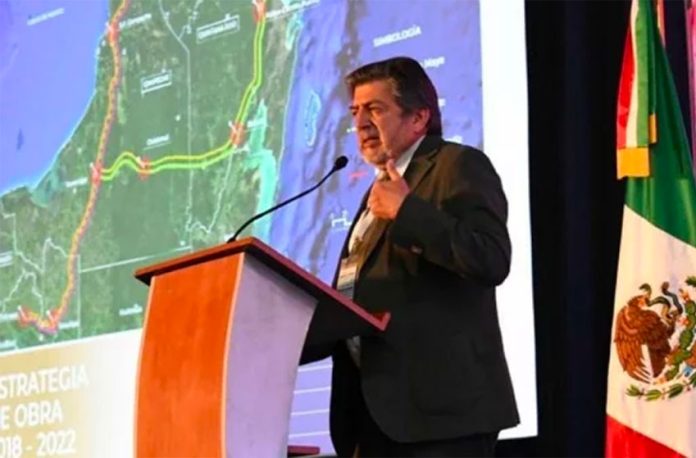The head of the National Tourism Fund (Fonatur) took aim on Wednesday at critics of the Maya Train, declaring that some of the opinions expressed about how much the project will cost and the impact it will have on the environment are incorrect and designed solely to harm the government.
Asked at a press conference about claims that the cost of the project could double, Rogelio Jiménez Pons responded:
“I’m going to say it in Mexican words – they just want to fuck with us.”
Jiménez accused the Mexican Institute for Competitiveness (Imco), which released a report in March that said that the cost of the Maya Train could increase tenfold to almost 1.6 trillion pesos (US $82.3 billion) “if planning is not optimal,” of failing to approach Fonatur to seek information about the project.
“Why didn’t Imco approach [Fonatur] to ask about the parameters of the design,” he asked, charging that the think tank’s cost estimates were based on guesswork.
Jiménez said the Maya Train won’t cost more than US $7.5 billion, pointing out that the estimated cost per square meter for the project is comparable to that incurred for the construction of a similar railroad in Uruguay.
“. . . Why do they say that [the cost of] everything is going to increase 10 times? It’s an exaggeration,” he said.
The Fonatur chief also addressed concerns that construction of the railroad will cause irreversible environmental damage, dismissing claims from former presidential candidate Gabriel Quadri and environmental conservationist Julia Carabias that the project will devastate jungle.
“These things have a political character. Who says that the jungle will be devastated? Obviously, [only] those who are our political adversaries . . .” Jiménez said.
The official charged that the Maya Train is an “environmentally and socially responsible” infrastructure project that will help to distribute tourism revenue across a wider region in southeast Mexico.
Jiménez also said that the construction and operation of the railroad will create hundreds of thousands of jobs.
Scheduled to begin operations in 2023, the Maya Train will have 18 stations in five states: Chiapas, Tabasco, Yucatán, Quintana Roo and Campeche.
Jiménez said in May that the Maya Train will trigger real estate investment of at least 150 billion pesos (US $7.5 billion).
But experts have warned that its construction poses environmental risks to the region’s underground water networks and the long-term survival of the jaguar.
Source: El Universal (sp)
